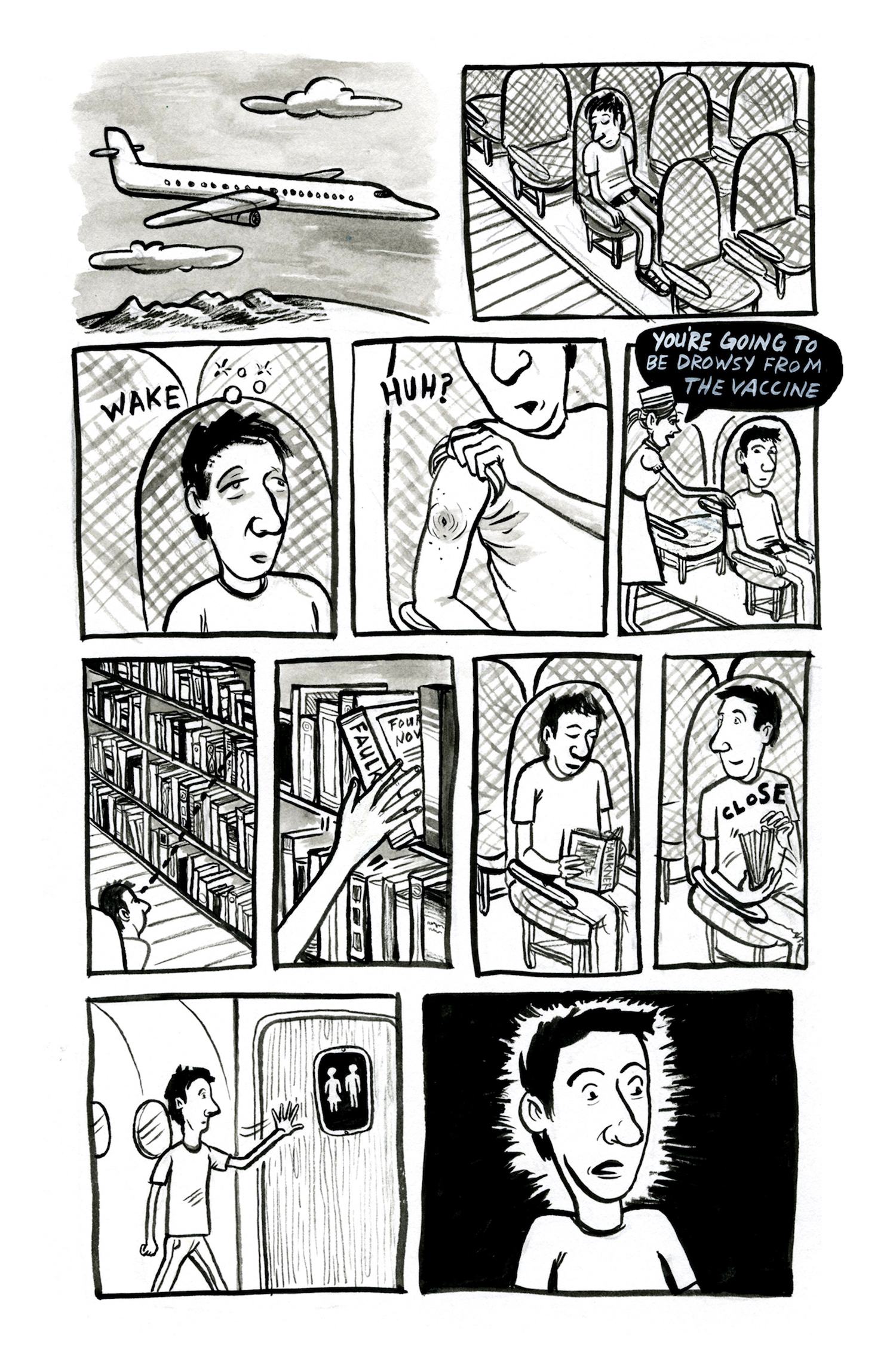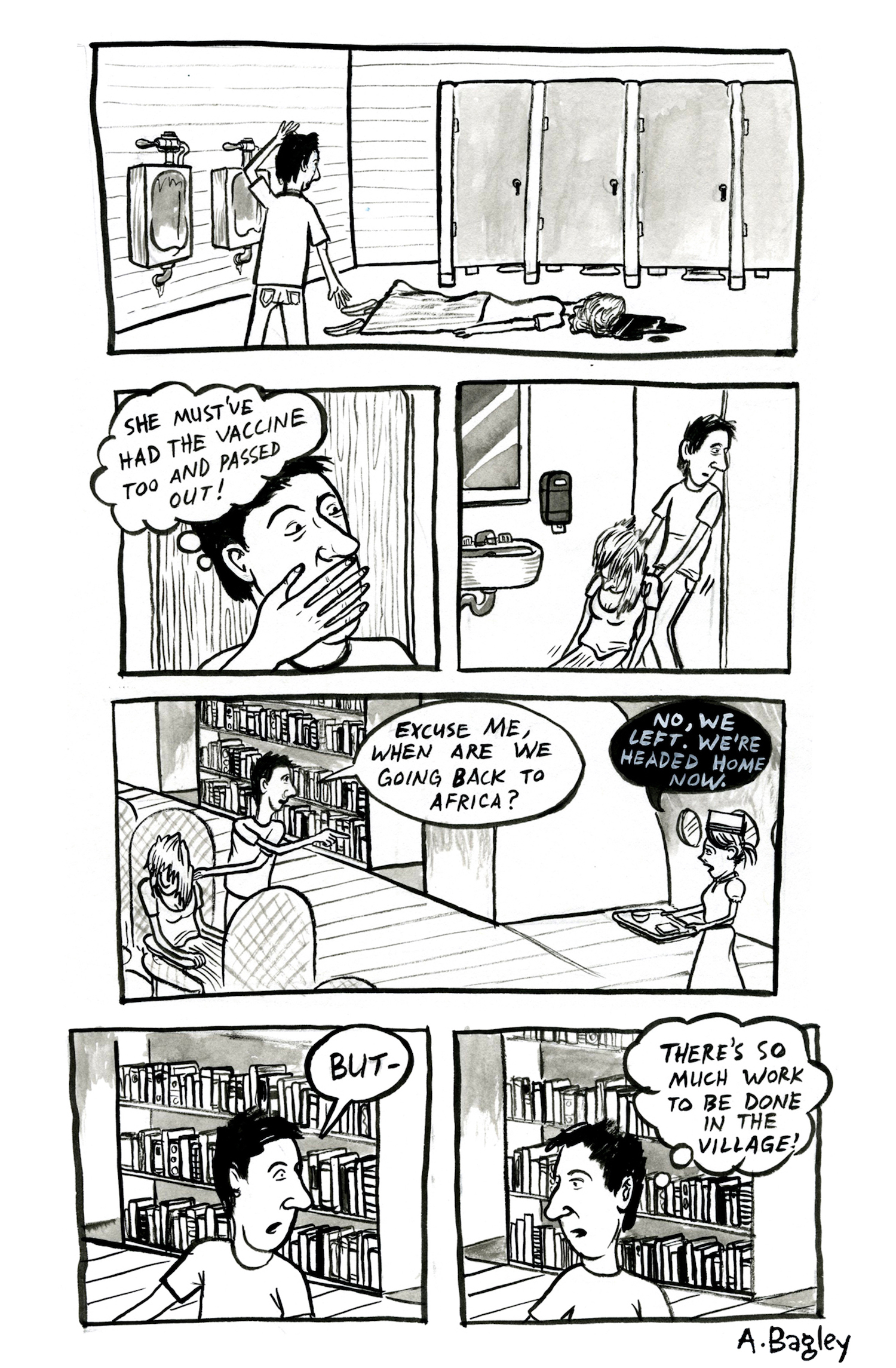Seattle Writing Prompts: Amazon's massive balls
Seattle Writing Prompts are intended to spark ideas for your writing, based on locations and stories of Seattle. Write something inspired by a prompt? Send it to us! We're looking to publish writing sparked by prompts.
Also, how are we doing? Are writing prompts useful to you? Could we be doing better? Reach out if you have ideas or feedback. We'd love to hear.

You have to admit that Amazon has balls. Big ones. Three, for some reason (probably so that nobody will say that they look like balls). They're right there, on the cusp of South Lake Union, right around the corner from one of the few remaining strip clubs left in the city. Sitting at the base of two unique and iconic tall towers, very well-designed by NBBJ.
It's one thing to have balls, it's another to really use them well. We talk about Amazon a lot on these pages. We reported on the first ever reverse-showrooming, after Amazon famously instructed their users to go to bookstores to find the book they want, and then buy it on Amazon. Ironically, then, Amazon worked on restricting internet access in stores.
Of course, Amazon is a large company and not everything they do is evil. Some of it is chaotic-neutral. The company, at heart, is really one simple thing: an efficiency engine. How can I remove friction in getting X to consumers? That's everything to Amazon. That's why you can order batteries on Amazon Fresh, or Amazon Now, or Amazon Prime Same-Day Delivery. They're all competing fiefdoms in the libertarian death-race of efficiency.
Is efficiency bad? Of course not. Some great things have come from it, and there are markets that probably deserve to be toppled, because they're built on platforms that are, at essence, capitalist con-jobs. I'm thrilled that the internet mattress companies like Casper and Leesa have taken on the ridiculous shell-game of classic mattress showrooming. There is no reason car manufactures, like Tesla, shouldn't be able to sell direct to the customer. In a capitalist society, competition is good. So, no, I don't think Amazon is evil. I think, in a large sense, Amazon is indifferent, and through indifference shows aspects of evil. Sometimes, Amazon is actually evil, but a company so large cannot be a single thing. It is a thriving eco-system, and in that eco-system lay many spectrum of value. I'm not even addressing huge swaths of their business that are worth mentioning, like Kindle publishing and what that has meant to independent authors, and what it has meant to traditional publishing.
Not that Amazon's critics are the most thorough. Talk to a typical lefty old-school Seattleite, and in the same breath they will complain about Amazon employees (rich tech workers moving to the city and driving up prices), and shed a tear for Amazon employees (non-unionized factory workers). I have a lot of friends who work at Amazon. I, myself, interviewed there (they passed on me, but would I have accepted an offer if proffered? That question is my personal-ethics version of the trolley problem, where one switch kills personal beliefs and the other kills debt).
So my feelings about the company are complex. I like the infrastructure they are bringing to the city. I like the varied marketplace of goods. I love Amazon studios, and Transparent, and other shows they're totally nailing. I don't like the whiff of caveat emptor that works its way in from the edges when they're asleep at the wheel, but I know that they believe in delivering value and goods to their customers, so things like that will correct when noticed. What I don't like the most about Amazon is how they're not a great neighbor.
For example, a company their size should be paying much higher taxes and returning wealth to the city in ways besides nice architecture. We should have a Bezos hall, or Bezos park, or Bezos library. Maybe someday we will, but until Amazon's rapacious growth suffers a hiccup and there is some kind of re-org that imparts a whiff of humility, it will be all octopus eating, and polishing the glass in your massive balls, that are private nature preserves for the private members of club Amazon, right in the middle of our city.
I guess they do remind us of who has the biggest ones in Seattle. Right now, like it or not, the answer is clear.
Today's prompts
First, they had to block all underground access. There was no way of controlling the spheres once they couldn't narrow paths in. Next, they made the only entrance a gauntlet. Acetylene torches hooked up to servos could spark a rain of fire. Booby trapped land minds under certain floor tiles would halt careless progress. Inside, they had supplies for at least a year. They could make it, so long as no one infected made it past their defenses.
"He proposed!?" — "Yup. Down on one knee. Had a drone flying right outside capturing the whole thing. I was crying so hard. It was so beautiful." — "And you don't feel weird that, you know, he did it at work?" — "Well, no. I mean, we both love the natural environment so much." — "The spheres are natural?" — "There is a lot of nature inside of them. Anyway, we met at work. We spend most of our days at work. We love our jobs, so why not propose at work?" — "And the drone was outside the spheres looking in?" — "Yeah. We petitioned security to get it back, so hopefully we'll have the footage, soon."
I am the exterminator. I get called in on the specialty jobs. This one was a doozy. Employees dropping food, and the food calls the rats and smaller birds, and the small birds call the crows. Suddenly, you have an aquarium full of pests. My job is to take care of them all. I fight the problem. It was what I didn't expect to find that shocked me. I didn't expect to find a dead body under the dry leaves in the middle sphere. This is a murder mystery, and now I'm out to find the truth.
All he wanted to do was stand on top of the spheres. He tried during the night, but the first time one of his suction cups didn't hold, and he had to replace it. The second try met with guards, who watched the spheres closer than he imagined. The third try, he got about half way up before he looked down, and then froze. What the hell was he doing? What would this prove? Why would he even risk himself in this idiotic stunt? It was as if a veil dropped, and he saw himself for the first time in a truly objective way. And what he saw was horrifying. Part of what he saw was that, he now realized, he was terrified of heights.
I am Rubi. I am Ficus rubiginosa. My home is the spheres, and I oversee all that happens within. Under my leaves the plans of humans are made. Fortunes are won and lost. Above me, a canopy of glass, and then the world. Above me, clouds. Around me, people, moving in a blur. A city changing. A pace too quick for me a tree to recognize. I think in seasons, and you think in minutes. One day, the glass around me will melt, and I'll break free, grow to the size of a skyscraper. I will be Seattle's Yggdrasil, and all shall worship at my trunk. Let me tell the story of how this all came to be...
The Help Desk: My book club is going soft!
Do you need a book recommendation to send your worst cousin on her birthday? Is it okay to read erotica on public transit? Cienna Madrid can help. Send your Help Desk Questions to advice@seattlereviewofbooks.com.
Dear Cienna,
I’ve been a part of a book club for five years. It’s a good group of people—all friends—and we started the group so we could keep reading the kind of challenging literary fiction we used to read in college as English majors. We’ve all been very happy with our selections.
Until recently.
Lately, I noticed that the group has been gravitating to more fluffy selections. The kind of stereotypical women-having-epiphanies kind of stuff that Oprah used to pick for her book club. At our last meeting, I asked if we were going to get back to the more complex books we used to read, and I kind of got shut down. I’m clearly the only one who feels this way.
I don’t know what’s going on here, exactly. Maybe they’re too upset by President T*p to be serious? Maybe they’re gravitating away from edgy material as they get older? Anyway, I want to quit, but I don’t want to be primadonnaish about it, or indicate that I don’t value their friendship at all. Do you have advice on how to approach this?**
Skyler, Seward Park
Dear Skyler,
Book clubs are social clubs. I empathize with not enjoying every book chosen for book club – I haunt several book clubs and am unapologetic about quitting books that don't appeal to me. Like most people, I attend them because occasionally, mama likes to shake off her spiders, put on pants that button and listen to other women discuss their blood-sucking dependents in a wine-infused setting. Plus, understanding how different readers approach and interpret a story, even a fluffy one, illuminates the text and your fellow human being.
I get the sense that the books you read in your club are based on consensus. Where I you and wanted to continue enjoying the company of my friends, I'd ask my book club to begin letting a new person choose the book each meeting. That way, everyone's tastes are represented (it doesn't hurt to grapple with less "complex" books from time to time).
But it seems that you want out, so breaking up with your book club is simple. You say, "Hey gang, my doctor recently told me that I'm allergic to fluffy, women-having-epiphanies, Oprah-book-club style books. Apparently, exposure to these kinds of books is aggravating my immune system's snob response – you may not have noticed because I've done a really great job at hiding it thus far. But now I'm on a strict diet of complex literature, which means I'm going to have to take a break from book club and your valued human company until you grow better taste in books."
Or just tell them work is busy and you have to take a break.
Kisses,
Cienna
Book News Roundup: Great opportunities for writers old(er) and young
Tomorrow is Literary Career Day at the Seattle Public Library downtown. It's described as "a free event providing young people ages 16-24 with direct access to industry professionals through networking, experiential learning, engaging conversations, and performances." If you know any aspiring authors, tell them to register today.
If you're a woman over the age of 50 and you write poetry, you should be applying for Two Sylvias Press's Wilder Series Poetry Book Prize, which "is open to women over 50 years of age (established or emerging poets) and includes a $1000 prize, publication by Two Sylvias Press, 20 copies of the winning book, and a vintage, art nouveau pendant." You have until November 30th to apply, but never wait until the last minute.
Here are the submission guidelines for you to be a part of the Shout Your Abortion anthology. Get your written and illustrated submissions in before November 15th!
Submissions in which writers address their own abortion experiences will be most highly prioritized, but any work related to the theme of abortion will be considered. Submissions can be published anonymously, though writers chosen for the book will be required to sign a release form. Most selections will be between 500-1700 words, but other lengths will be considered. We are seeking as broad a representation of racial, age, gender, and geographical diversity as possible. Stories not selected for the book will also be considered for publishing on SYA’s website.
The University of Aberdeen has put a beautiful reproduction of a very old manuscript called The Aberdeen Bestiary online for anyone to view for free. It opens with the creation of the heavens and the earth, so it's, you know, pretty epic.
Cartoonist Tom Gauld's vision of an e-bookmark is depressingly true to life.
Weird, isn't it, that the publisher chose a photo of Sylvia Plath in a swimsuit for the cover of her collected letters? Nichole LeFebvre writes for Literary Hub:
I do think calling “male gaze” on the cover of Letters implies a certain level of pity: poor Sylvia, even in death, being paraded around for men. Yet we should not overlook the hyper-aware carnality of her work, her insistent control. Even in a poem like “Lady Lazarus”—in which Plath calls death “the big striptease” and brags about the “very large charge” for a glimpse at her scars—the tone is chirpy and flirtatious, with those trademark round vowels and confident, declarative lines. It’s this allure—delicious poison—that makes her poetry so powerful, so lasting. She is in control. She flirts you close enough to burn you.
- Here's some more commentary on the cover:
If male writers were marketed in the same way as female writers. Via Christopher Hamilton-Emery. pic.twitter.com/1IwN8MfckZ
— Jane Harris (@blablafishcakes) October 4, 2017
- This is the best protest chant ever:
Barcelona, Via Laietana, crowd in front of spanish police HQ "This building will be a library!". General Strike in Catalonia #vagageneral3O pic.twitter.com/luAdMdDHI0
— L'Accent (@laccent) October 3, 2017
Does Blade Runner 2049 honor the themes of Philip K. Dick?

I won't spoil any of Blade Runner 2049 for you. Just trust me when I say you should go see it as quickly as possible, on as large a screen as possible. (I recommend going to Cinerama, obviously.) The performances are roundly incredible, but Roger Deakins's cinematography runs away with the show. Deakins, whose photography made the generic Spielbergian thriller plot of Minority Report into a cultural touchstone, is doing the best work of his career with 2049.
I'm glad to report, also, that this isn't some dumbed-down franchise-builder of a sequel. It's very much in the tone of the original film, in design and sound and pacing. If you were worried about the possibility that 2049 would amount to a Fast and the Furious movie set in the Blade Runner world, you should rest assured that it's a close relative to the original. It is a noir film and a sci-fi film, and a film for adults.
But is 2049 in the spirit of Philip K. Dick? The first film, of course, was based on the Dick novel Do Androids Dream of Electric Sheep, and it hewed very close to Dick's central themes of technological alienation and the blurred lines of identity and personhood in modern civlization.
The truth is, I'm not sure if 2049 is a truly Dickian movie. The film does address some of the first film's themes of what makes a human, but it doesn't seem interested in those questions in the same way that Dick was. Instead, it moves on to other themes and topics. It has its own questions to consider.
But would it even be worthwhile or relevant for 2049 to address the questions raised in Do Androids Dream of Electric Sheep? Perhaps now that we all carry thrumming electronic rectangles that contain all of our interests, hopes, and fears, we've moved as a society past Philip K. Dick's concerns of what it means to be a person in an accelerated technological era.
"Who am I?" seems like a question our artists left behind in the hairy, self-investigatory late 1970s and early 1980s. Now, our art seems to be more interested in questions of purpose and intent, and 2049 definitely does some interesting work in those spaces. It's a movie that people will be pulling apart for months and years to come, and I hope that there will soon be a raucous and inclusive public conversation about where the film stands in the pantheon of Dick's fictional worlds.
Portrait Gallery: Caitlin Doughty
Each week, Christine Larsen creates a portrait of a new author for us. Have any favorites you’d love to see immortalized? Let us know
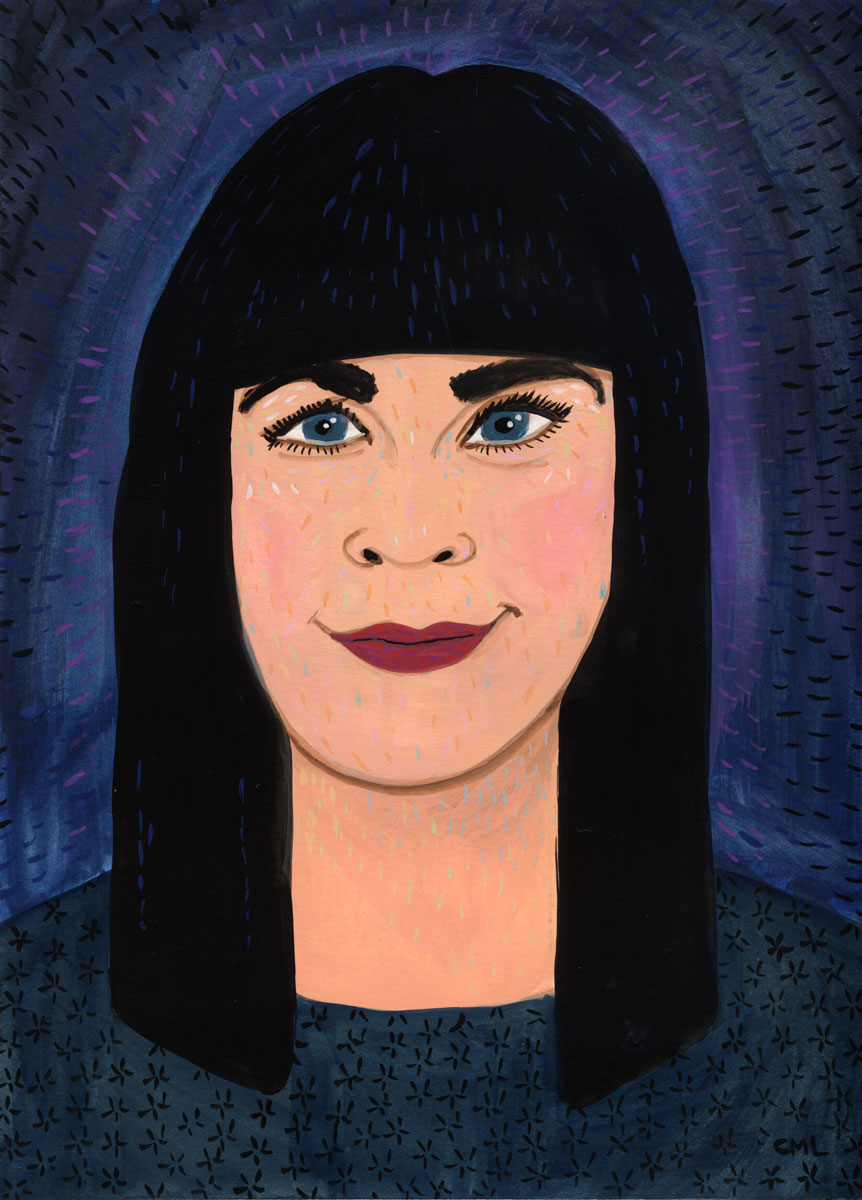
Friday, October 6: From Here to Eternity Reading
Caitlin Doughty is a mortician whose new book, From Here to Eternity: Traveling the World to Find the Good Death, “travels the world [from Bolivia to Japan to Indonesia] to discover how other cultures care for their dead.” Tonight, she’s joined by Seattle poet Sonya Vatomsky in an onstage conversation. She goes to Bolivia to see cigarette-smoking, wish-granting human skulls; to Japan to watch relatives of the deceased use chopsticks to pluck their loved ones’ bones from cremation ashes; to Indonesia to watch a man dress his grandfather’s mummified body.
The Summit, 420 E. Pike St., 322-7411, http://townhallseattle.org. $5. 21+. 7 p.m.
Kissing Books: She works hard for it, honey
New Column! Every month, Olivia Waite pulls back the covers, revealing the very best in new, and classic, romance. We're extending a hand to you. Won't you take it?
There is a type of romance that revels in workless wealth and luxury (see: most dukes and so many category romances set in the Greek islands). There’s another kind that makes the performance of labor central to the plot and the romantic arc. And in this second type, obviously, romance heroes and heroines never have incidental jobs.
Part of this is just fiction’s general conceit. Everything in a novel means something, or else you’d leave it out. And a romance might not always show that high-powered CEO setting the agenda for the board meeting, or give you pages of the governess heroine planning Young Lady Plot Moppet’s curriculum. But even the most sketched-in career is going to have narrative heft, because in a work-based romance novel what someone does tells you who they are. Labor is character, and character is destiny.
That super-rich CEO is going to have some of those sharp edges ground down. The governess heroine is absolutely going to repair some deep-seated rift in her employer’s household – solving the mystery of his first wife’s disappearance, or bridging an emotional gulf between a parent and a child. Cupcake bakers, Navy SEALS, lawyers, journalists, librarians, police and fire services, professional athletes, tattoo artists, publicists, and astronauts: these jobs have cultural and therefore narrative capital. Speculative subgenres are not exempt either with their space pirates, monster hunters, witches, and psychics.
The fantasy in these romances is not just a fulfilling sexual relationship. The fantasy is that the work you do matters, and will have a meaningful positive impact on the world. Your dreams of success are not trivial. They are not selfish. It might take sacrifice, but you’re hard-working and determined. You’ll eventually come up with the great marketing idea that will turn your failing seaside hotel into the latest trendy vacation spot, while the cutthroat but distractingly hot real estate developer will stop trying to pressure you to sell and will instead turn his energy to rehabilitating the town’s waterfront boardwalk, creating jobs for all those nosy local folks who gossiped about the two of you every time you had a big public spat outside the ice cream shop. You weren’t thinking about saving the world, or leading the revolution. For most of the book, you might have been barely scraping by. But by the end, you will be invaluable to your corner of society. You will be loved, yes, but also you will be known. Your efforts and talents will be recognized. You will mean something.
Recent Romances:
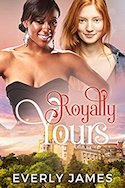
Royally Yours by Everly James (self-published: f/f contemporary)
Cute lesbian princess romance where they meet in an urban farming co-op. Which may not be quite what it appears (where is all that tuition money going?). It’s one of those books that throws a bit of everything into the mix – melodrama, mystery, misunderstandings – so it’s lucky that the prose is as airy and delicate as candyfloss. Princess Melody of Madrana is trying to escape the rigid rules of her tyrannical royal mother. Farm-raised Ellie loves art, gardening, and growing things but loves New York City more than the small upstate town she grew up in. Hints of real trouble cut the sweetness somewhat, and the author has a gift for cozy descriptions that make you wish all these places and people were real so you could go visit. The plot is a bit of a meander, but otherwise this is an fun, fluffy confection to keep handy for getting through flu season and stressful family dinners.
Melody pasted on a smile. She had an idea brewing that made her fingers tingle. It had fallen so neatly into her head that it was like a book toppling from the highest shelf. But she couldn’t let on that she had a plan.
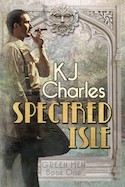
Spectred Isle by KJ Charles (self-published: m/m historical fantasy)
If you’re a fan of historical fantasy, I can tell you this story’s tone is the exact midpoint between Jonathan Strange and Sorcerer to the Crown. If you aren’t a fan of historical fantasy, this is a marvelous place to start. Ex-WWI soldier and archaeologist Saul Lazenby is disgraced in the eyes of his government and disowned by his family. The only person who’ll hire him is a crackpot amateur occultist with a head full of magical nonsense, who drags him around London looking for odd legends and implausible incidents. At least it’s a living – until actual magical things start happening, and actual magician Randolph Glyde starts turning up in all the wrong places, looking cynical and sinful. Randolph is from a long line of English magicians, guardians of the old ways and servants of the country – not the government, but the land itself, which grants Green Men like Randolph significant powers and arcane responsibilities. One of which is to keep bumbling neophytes like Saul from meddling in magics they do not understand. Naturally he has to take an interest in the man. Surely it’s nothing to do with Saul’s haunted eyes or perfect top lip. Watching two guarded men trade arch Lost Generation banter while edging closer and closer to romance is deeply satisfying; the book’s wry, anguished, darkly witty prose will make it perfect for the coming rains of autumn.
“If only more of his work involved sinewy, sunburned, sensitive men, rather than people who lacked the common decency to die properly.”
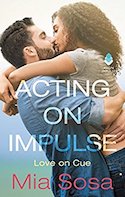
Acting on Impulse by Mia Sosa (HarperCollins: contemporary m/f)
This romance turns on the thematic tension between acting-meaning-performance and acting-meaning-doing. Carter Stone is sick of being typecast as the forgettable lead in television romcoms; he wants a serious part, one that will earn him respect and A-list status. Tori Alvarez is a physical trainer who hopes to start her own studio with a workout program accessible to bodies of all shapes, abilities, and income levels. She’s also reeling from a very public breakup with a very ambitious jerk, who played up their relationship in the media but constantly nitpicked her in private. Whipping rising star Carter into shape for a meaty role in a high-profile film would be great for business, but she doesn’t want her personal life anywhere near the limelight. Both are guarded in distinctly different ways: Tori is prickly and suspicious, while Carter uses affable charm as a defensive mechanism to keep people distracted from his real vulnerabilities. The book is an emotional roller coaster – tender wounds are poked at, families cause drama, careers take hits and recover – but the thing about roller coasters is the good ones have to have a lot of carefully laid out, sturdy structure underneath. What I’m trying to say is that the book feels both effortless and intricate, in the way of truly great genre offerings (Die Hard, Jurassic Park, Clueless) and I have very giddy expectations for the next in the series.
I make my living convincing audiences that love at first sight exists. Turns out I’m a shitty actor because there’s not much pretending involved. It happens. Because I’m pretty sure I’m experiencing it right now.
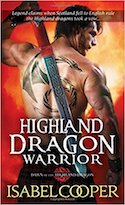
Highland Dragon Warrior by Isabel Cooper (Sourcebooks: historical fantasy m/f).
Isabel Cooper’s romances have a Lovecraftian edge – most notably her glorious debut No Proper Lady, a time-traveling tentacle-monster miracle best described as “Terminator 2 meets My Fair Lady.” Even without the tentacles, there’s always the sense that something sinister is muttering about blood in the shadows. This new book kicks off a medieval prequel series to Cooper’s Victorian-set Highland Dragon shifter books, which now that I write it out sounds like the most Peak Romance thing you can make without having to send a check to Colin Firth. The year is 1304 and our Scottish dragons are fighting hard in a doomed rebellion to cast off their recent conquest by the English king. By the time Jewish alchemist heroine Sophia is explaining to semi-immortal dragon shifter hero Cathal why the deer he just killed is not kosher, I was in love. This is a tender, slow-burn romance in a dark and eldritch world – more Gothic than grimdark, thankfully. The magic is delightfully medieval: herblore, sympathetic influences, planetary alignments, dream worlds. The plot is a trifle too straightforward but the richness of the atmosphere and the gentle power of the romance more than makes up for it. Bonus points for a big, burly, warrior hero who is also kind, careful of his strength, unsure of his leadership skills, and unshakeable in his belief in the heroine’s intellect.
“You swim in time,” she said with no bitterness and only a trace of envy. “We…we ration it and if we don’t count each drop, that’s only because we can’t.”
This month’s Heroine Who Is Definitely Going To Break That Vow Of Chastity
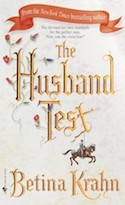
The Husband Test by Betina Krahn
Medieval-set romance novels can flirt more directly with fairy tales than most other subgenres. Betina Krahn’s lively and charming story about know-it-all novice nun Eloise and a blustery earl named Peril certainly has a lot of Grimm-approved elements: a curse that needs breaking, a realm in decline, a witch in the woods, an evil villain, plenty of daring rescues. But one moment in particular illustrates the way romance can subvert these much-repeated tropes even as it feeds on them. Eloise is an unruly, hands-on novice whose constant attempts to “improve” the convent have the abbess at her wits’ end. To get a little peace of mind, she contrives to send Eloise as a “husband judge” to the Earl of Whitmore, whose estate is in rough shape and in need of a “bride of virtue” to break a spurned woman’s curse. Eloise will judge the earl’s fitness as a marital prospect, and the abbess will then send him a bride from one of the high-born maidens the convent educates and protects. Eloise and Peril take an instant dislike to one another – but gradually, as they work to improve the estate and the lives of its tenants, they come to recognize the other’s value. Eloise sends a letter approving the earl’s character, and the abbess sends back a small wooden box with the message: “The earl’s bride is here.” Eloise opens it to find a mirror within – meaning, of course, that she is to marry the earl. It’s a classic riddle-solution, and any fairy tale version of this story would have ended right here.
In The Husband Test, this moment comes precisely at the halfway mark. Instead of being relieved and delighted – Eloise and Peril have already made out a couple times, and they’re clearly irresistibly into one another – our heroine is horrified. She’s spent her whole life among the nuns, expected to take her final vows at the end of this mission, and now they’re telling her she’s unfit. That they don’t want her. She is being cast out by the only family she’s ever known, and it is shattering. We know she’ll come to love her husband, and we know she’ll overcome the curse and end up beloved and blissful in her new role as lady of the manor. But that’s half a book away: right now we must witness Eloise mourn for the dream she’s cherished for a lifetime. Nisi Shawl in a recent column said that stories find their driving tension in “the gap between ‘What is’ and ‘What must be’” – and The Husband Test certainly thrives in that space.
Upcoming conventions and conferences
Emerald City Writers’ Conference: October 12–14: I have a deep, abiding affection for the Emerald City Writers’ Conference: it was my first conference as a baby romance writer, and I’ve served on the committee a few times in past years. The conference is organized by the Greater Seattle chapter of the Romance Writers of America and while the workshops have a strong romance bent, the craft and techniques being taught are by no means limited to romance writers. I’m particularly excited about this year’s list of research-track workshops (“Poisoning – Accidentally or On Purpose”) but I know I’ll end up somewhere unexpected and useful. This con has a national reputation for being friendly, welcoming, and valuable for writers at all levels; it is geared toward professional writers but opens free to the public at 6 p.m. on Saturday night for the Passport to Romance Reader Appreciation Event (spoiler: I’m one of the authors attending!), which is essentially a cocktail party for readers and authors alike. And we romance folks love a good cocktail party.
Further out on the calendar:
- Read With Pride Northwest: November 4 - 5
- JaneFest 2017: November 4
The good old days aren't what they used to be
Published October 05, 2017, at 11:01am
Noam Chomsky is known for his long career as a thoughtful academic who builds complex and well-reasoned critiques of American institutions. Why the hell is his most recent book so lazy and shoddy and bad?
Thursday Comics Hangover: A dark Knight
I was 13 when I first read Frank Miller's The Dark Knight Returns, and in retrospect I realize that it fucked me up for years. I wasn't mentally prepared to handle Miller's deeply conservative dystopian Batman comic, and so for a long time afterward I confused violence and nihilism for "serious art."
So many years later, Returns reads like a clunky piece of satire by a man who was teetering on the uncomfortable razor's edge between artistic curiosity and self-loathing regressivism. But the one thing it has going for it is its obvious merit as a work of art: when he wanted to, Miller could really put together a brilliant sequence panels. (Although I'd argue that the first Sin City collection, and not Returns, is his true masterpiece.)
Miller has now gone back to the Dark Knight well twice, with diminishing returns each time. The latest volume, Batman: The Dark Knight: Master Race, is out in a collected edition now, and I can't really think of a single redeeming value for this book. Supposedly co-written by Miller and Brian Azzarello, and drawn mostly by Andy Kubert, I'm almost unwilling to attribute Master Race to Miller at all — Miller himself says he had little to do with the actual inspiration for the thing — but his contributions to back-up stories in the volume seem to indicate that he at least had some say as an artist.
The most generous interpretation of Master Race is that Miller is trying to revive the fun high-concept sci-fi of the comics he read as a youth. The book, which depicts a war between older versions of Batman and Superman and an army of pissed-off Kryptonians, features DC mainstays like The Flash, Aquaman, and the Atom.
But the lack of technical proficiency defuses the reader's enjoyment on every page. This book is lazy and uninspired, like Dark Knight Returns fan-fiction written by someone who thought the only problem with Returns is that it didn't co-star the whole Justice League. Way too much of the book consists of sloppily rendered figures standing in front of empty backgrounds, which are then filled in with muddy reds and browns by colorist Brad Anderson.
Even worse are the backup stories, many of which are drawn by Miller himself. These stories are entirely non-essential, usualy explaining what some minor character from the main story is doing when he or she is off-panel. And don't get me started on the art. I think this is supposed to be the Eiffel Tower:
Sure, Returns was a story about a deeply fascistic rich man having a midlife crisis, but it was at least a well-rendered story about a deeply fascistic rich man having a midlife crisis. And Miller's overt acceptance of the underlying fascist tendencies in superhero comics was at least novel at the time.
Master Race doesn't even have the werewithal to take a stand on fascism. There's nothing pleasurable about this book. It's like a boy who melts his action figures with a purloined cigarette lighter and then bashes the disfigured toys all together until he randomly determines a "winner." The thing is a mess from the bottom up.
Kazuo Ishiguro wins Nobel Prize for Literature
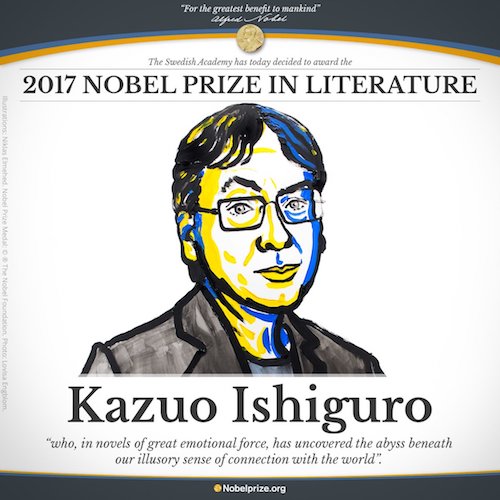
The British novelist is obviously a terrific choice for the Nobel Prize. People who like to read into the behind-the-scenes politics of prizes will likely be speculating that Ishiguro is a safe and uncontroversial choice after last year's polarizing selection of Bob Dylan.
But no matter what the reasoning behind the award, Ishiguro is a deserving winner. I know a lot of booksellers and librarians who consider him to be their favorite novelist. The Remains of the Day remains his greatest achievement, but his dystopian Never Let Me Go is perhaps his most haunting book — an elegy for the self, a story about identity and love and morality in an age where the technological hum in the background has slowly increased to deafening proportions.
Among the ruins
Published October 04, 2017, at 12:00pm
Jessica Mooney confronts what it is about disaster tourism that both compels and repels, as she reads Kristen Radtke's Imagine Wanting Only This.
Your Week in Readings: The best literary events from October 4th - October 10th
Wednesday, October 4: Lit Crawl Kick-Off Party
It’s almost time for Lit Crawl, Seattle’s wildest cross-city literary party. Tonight, the hosts present an unveiling ceremony where they’ll reveal this year’s lineup of readers and venues to an early-bird crowd, along with readings from local writers and an auction to raise money for the event. \ Capitol Cider, 818 E. Pike St., 397-3564, http://litcrawl.org/seattle. $10. 21+. 6 p.m.Thursday, October 5: WA 129 Reading
Washington State’s outgoing poet laureate, Todd Marshall, collected as many Washington poets as humanly possible in an anthology titled WA 129. Tonight, Marshall will be joined by 15 local poets, who will each briefly read. Expect to see Elizabeth Austen, Claudia Castro Luna, Sierra Nelson, Susan Rich, and Martha Silano, among others. Open Books, 2414 N. 45th St., 633-0811, http://openpoetrybooks.com. Free. All ages. 7 p.m.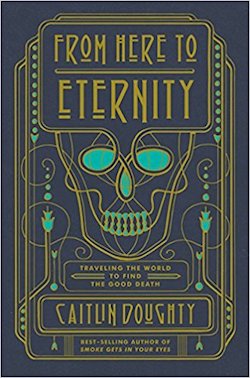
Friday, October 6: From Here to Eternity Reading
Caitlin Doughty is a mortician whose new book, From Here to Eternity: Traveling the World to Find the Good Death, “travels the world [from Bolivia to Japan to Indonesia] to discover how other cultures care for their dead.” Tonight, she’s joined by Seattle poet Sonya Vatomsky in an onstage conversation. She goes to Bolivia to see cigarette-smoking, wish-granting human skulls; to Japan to watch relatives of the deceased use chopsticks to pluck their loved ones’ bones from cremation ashes; to Indonesia to watch a man dress his grandfather’s mummified body.
The Summit, 420 E. Pike St., 322-7411, http://townhallseattle.org. $5. 21+. 7 p.m.
Saturday, October 7: “Write-In”
This confluence of the literary and the political (“politeracal?”) is a combination of readings by local writers, writing prompts, and joint writing exercise. These events are intended to celebrate the importance of free speech in these Trump-y times. This event is put on by Write Our Democracy, which used to be known by the much better name Writers Resist. Hugo House, 1021 Columbia St., 322-7030, http://hugohouse.org. Free. All ages. 10 a.m.Sunday, October 8: The Future Is History Reading
See our Event of the Week column for more details.Monday, October 9: Skyfarer Reading
The best sci-fi bookstore in town brings a Tacoma author named Joseph Brassey to town with his brand-new space fantasy about knights in space and a magical gem. No less a talent than Neal Stephenson says Skyfarer is “One of those remarkable books that consists entirely of ‘the good parts.’” University Book Store, 4326 University Way N.E., 634-3400, http://www2.bookstore.washington.edu/. Free. All ages. 7 p.m.Tuesday, October 10: Nasty Women Reading
This anthology from Samhita Mukhopadhyay and Kate Harding is about “Feminism, Resistance, and Revolution in Trump’s America,” and it was inspired by the Women’s march. The editors are joined by local superstar Ijeoma Oluo, who has a much-anticipated book coming out next year. Hopefully there will be several good Janet Jackson jokes to accompany all the good, thoughtful conversation. Seattle First Baptist Church, 1111 Harvard Ave, 652-4255, http://townhallseattle.org. $5. All ages. 7:30 p.m.Literary Event of the Week: Masha Gessen at Piggott Auditorium
Permit me a moment to entertain my own craven self-interest: Reading Through It, the book club co-sponsored by the Seattle Weekly and the Seattle Review of Books, is happening tonight at Third Place Books Seward Park. We meet at 7 pm, you can bring booze to the book club, and no purchase is necessary. We’ll be discussing Noam Chomsky’s book Requiem for the American Dream. Our Trump-era book club is still going strong, with dozens of folks coming out for last month’s event, but there’s always room for you.
Not every book we’ve featured at Reading Through It has been great — looking at you, Hillbilly Elegy — but one of the most successful discussions we’ve had was for New Yorker author Masha Gessen’s The Man Without a Face: The Unlikely Rise of Vladimir Putin. Gessen is an exemplary journalist who knows when to sit back and let the facts speak for themselves. When writing about the rise of Putin, she knows that no amount of fancy adjectives can outstrip the horrors committed by the man, so she simply reports in clear language and allows readers to color in the details of the ghastly assassinations and brutal intimidation tactics on their own.
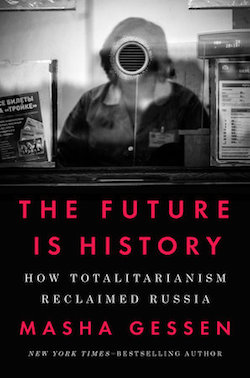
Now, Gessen is returning to Seattle at a special Sunday event, at 6 pm at Piggott Auditorium on Seattle University campus. She’s reading from her brand-new book The Future Is History: How Totalitarianism Reclaimed Russia. This book just might be the culmination of Gessen’s life’s work: a comprehensive and dense piece of reportage that details how the world’s other superpower collapsed after communism and then found a weird afterlife as a nasty mobster of a nation.
While it’s unlikely that Gessen included much — if anything — in the new book about Russia’s interference in the 2016 presidential election, it’s very likely that American readers will be able to make some inferences from History. In our book club, Man Without a Face heavily informed both our understanding of Donald Trump and our comprehension of how and why Russia might have gotten involved with our electoral process.
If you’ve been confused by all the talk about the so-called “Russia stuff” — the conversation about how Russia might have helped elect Donald Trump — this might be the most important book you’ll read all year.
Gessen is the best kind of non-fiction writer: she teaches her audience to be smarter. She doesn’t just jump to conclusions: she provides the evidence to her readers and allows them to make connections. And with this magnum opus of a book about the fall and rise of the world’s most misunderstood antagonist, it’s very likely that American audiences will soon learn more about Russia than they ever thought possible.
Seattle publisher Sasquatch Books has been bought by Penguin Random House
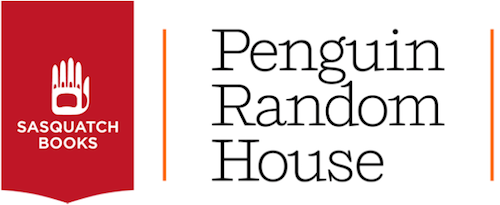
This morning, Seattle publisher Sasquatch Books announced that they've been acquired by New York publisher Penguin Random House for "an undisclosed sum." Sasquatch and Penguin Random House are not strangers to each other; the larger publisher has served as a distributor for Sasquatch since 2012, shipping the smaller publisher's titles to bookstores and marketing their upcoming books to retail buyers.
Sasquatch is not moving to New York; the press will maintain their offices and staff on 3rd Avenue downtown, and they will continue to publish titles — cookbooks, guidebooks, children's books, and so on — with a Northwest perspective.
“We are going to be the same Sasquatch Books as always, publishing great talent from the Pacific Northwest," Sasquatch publisher Gary Luke wrote me in an email yesterday. "We are still an independent publishing company with our own editorial, design, production, and marketing. It’s important to point out that Sasquatch will not become an imprint of Penguin Random House."
"So, to readers of the Seattle Review of Books, I say: Got a book idea? We’d like to hear about it,” Luke concludes. (Sasquatch's submission guidelines are posted on their About page.)
As for the immediate future, Sasquatch is publishing a full complement of local-interest books and/or books by local authors this fall. A pair of highlights: Pie & Whiskey is an anthology collecting readings from a popular literary series, edited by Spokane authors Kate Lebo and Sam Ligon. And David M. Buerge's Chief Seattle and the Town That Took His Name is described as "the first thorough historical account of Chief Seattle and his times." You'll be reading more about both those books right here in the weeks to come.
Born Again
Published October 03, 2017, at 12:19pm
EJ Koh’s stellar debut collection starts in heaven, goes to war, and then finds love.
Ta-Nehisi Coates's new book is on the stands in bookstores now
Today is the publication date for the new book by Ta-Nehisi Coates, We Were Eight Years in Power. It's a collection of essays which have previously been published in The Atlantic, along with eight new essays that look back on each year of the Obama presidency.
If you're missing Obama right now, this might be the book for you. And of course, this book is a big deal because it's the first Coates book to be published since his breakout sensation Between the World and Me. It's hard to imagine another book having the impact of World, but Coates has basically become a household name, and so this is the book everyone is sure to be talking about for the next few weeks.
Coates is right now on a promotional tour for the book. Last night, he appeared in a good (albeit brief) interview on Pod Save America, and he's also the subject of a very good New York Times profile.
My Subjects
There are three
people float
ing in a
lake. One does
not know how
to swim and
neither do
the others
saying I
don’t know how
to swim I
don’t either.
But there. They
are. They’re float
ing straight up
and down so
the top third
of each face
bobs just a
bove the wa
ter. These are
a few of
my favor
ite subjects.
Mark Oct. 14th and 15th for the Seattle Antiquarian Book Fair
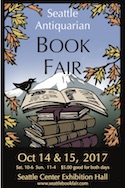
Sponsor Seattle Antiquarian Book Fair is back this week to make sure you're holding a spot for them on your calendar — and you definitely should be. The annual event brings "the best bookstore in America" to the Seattle Center's Exhibition Hall, packing it with books and book lovers.
This year's Book Fair is October 14th and 15th. Just $5 gets you entry on both days, with access to more than a hundred exhibitors from the United States, Canada, England, and Spain, sharing rarities, collectibles, and ephemera. You won't want to miss it.
Sponsors like the Seattle Antiquarian Book Fair make the Seattle Review of Books possible. Did you know we sold out our last sponsorship run? We're booked solid through the end of January, but if you have a book, event, or project you'd like to get in front of our readers, reach out and let us know. We'll be happy to crack open our calendars and reserve you ahead of the pack.
Seattle's first Civic Poet, Claudia Castro Luna, was featured in a terrific segment on PBS Newshour, talking about her Poetic Grid of Seattle:
Talking with EJ Koh about translation and what it means to be a Seattle poet
As a translator, EJ Koh told me at her book launch party at the Hugo House last month, “there are many ways to use one word. In that sense, the words feel heavier to me” as a translator than they do as ‘just’ a poet. “They weigh heavier on my heart and in my mind.” She continued, “when I'm writing poetry in English, I think, ‘how can I make this word in English mean so many things? How can I manipulate it in that way?’”
Koh is a genius at manipulating the meanings of words: the poems in her debut collection, A Lesser Love are happy and sad and funny all at the same time. In some ways, her poems are a little like those plastic layers you used to find in old anatomy textbooks to illustrate the varied systems of the human body. Peel back a single layer and you’ll find something new underneath — a system that’s just as essential to the life of the organism as everything else.
Koh and I spoke briefly at the end of her reading. What follows is a lightly edited transcript of our conversation. (Many thanks to Hugo House programs assistant Kelsey Lacanilao for sharing her audio recording of the event.)
You've written a little bit about the act of translating poems from Korean to English with your parents. I was wondering if you could talk a about that.
So I'm not super, super fluent in Korean — I can do karaoke, but I'm not super fluent.
But I do translate Korean poetry, and I use the help of my father, who's been great. My dad gets the literal translation for me. I get to sit next to him and ask him the context because the literal is not enough. I also want to know for him being born at that time — let's say post-occupation or so — and so during the war, what was going on? What was the pop culture? What did that word mean then, not what does it mean now? So that's been really great.
It's also a sly way to get your dad to start reading poetry.
Also, the poet I translated is my mom's best friend from high school. Her name's Kim Myung Won. I found out about her because me and my mom and Kim Myung went to karaoke once. We got hammered. Then Kim Myung looks at me and she goes, ‘You know, I'm a poet.’
And I said, ‘What? Me too.’
My mom's hammered and she's like, ‘Oh, yeah, yeah, yeah, yeah. You're both poets.’
And I'm saying, ‘Mom, why didn't you tell us sooner?’
Kim Myung was like, ‘Do you want some of my poems? Do you want to translate them?’
And I said, ‘Yeah. I do.’
It turns out some of her poems are pretty raunchy. And having to get the literal raunchy translation of them through my father was sometimes awkward because I'd be like, ‘Dad, this word means many things but does it mean this?’
And he's like, ‘It does, yeah, but more... it's dirtier."
And I was like, ‘Oh my gosh.’
So it's been great.
So you didn't do so many historical poems tonight, but you do write a lot about history.
I do. Yeah.
Do you ever find the past to be a confining subject? Or is it more of a liberating subject? Do you find your inspiration there?
I do talk about historical events, and I rewrite those poems again and again because there are so many different colors to the events themselves, and there's so many different perspectives, that I can go over them again and again.
It's not limiting. It’s just the opposite — almost like going back to revise and see a new sheen or, I guess in the Instagram culture it's like a new filter, to look at the things that happened.
I think it's such a wonderful well, and an abundant well. Every time you go back to an event, there is something we didn't know at the time that we do now. Rarely do we go back to apply what we know now to those events and say, ‘That's why. That's why these people felt this way. That's why they left their country, or that's why this has all happened and it has now accumulated to this.’
I think it's part of history to go back and revise, to revisit, to listen to the ghosts, to do your work. It’s part of culture.
Do you consider yourself to be a Seattle poet?
Yes. Oh my gosh! Yes.
How does Seattle represent itself in your work?
The last poem in my book is called, "Alki the Town of Dreams." I also have a poem called "Madrona." I have poems about places all over Seattle.
I've lived in San Jose. I've lived in Davis, and in Irvine, which is near L.A., and New York. I would travel here and there for fellowships and scholarships, but it didn't feel like home until I came to Seattle.
Seattle was sort of a pivotal moment where everything came together. Everything I could have wanted — the time to write, the space, the community, the creativity, the energy, the people. I am so happy to be a Seattle poet.
